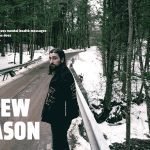On restoring the Gulf, its music, and other things
My family moved to Central Florida from southeast Long Island when I was two. For all intents and purposes, I grew up in a small “southern” town nestled somewhere between Daytona Beach and Orlando. I use the quotation marks around “southern,” because non-Floridian southerners laugh at the inclusion of the Sunshine State with “The South.” I, however, would be hard pressed to imagine anything more southern than a small town hub surrounded by fern farms. A healthy portion of the cars in my high school parking lot were trucks with very large wheels (great for muddin’) and rebel flags. Many of them had CB radios. The FFA was sizable. NASCAR was 20 minutes away, max. We drank Mountain Dew like water and spent plenty of weekends camping around turtles and gators, cruising country roads, blasting Brooks & Dunn. It was the south. I don’t care how you slice it.
It was also closer to the East Coast of the peninsula. The waves were higher, the water was rougher, the beaches more crowded, more commercialized. Locals laughed at tree-hugging environmentalists who would dare speak of outlawing traffic on beaches or building on dunes. I was among them. The beach was there for cruising – that’s just how I grew up.
My experience on the Gulf Coast growing up was sparse. Now and then there’d be a family outing to the Tampa area. As a teenager, my friend who would eventually pull me into being a songwriter would pile me and a box of CDs into his car and drive us out to what we called the armpit of the state – where the bulk of the peninsula meets the panhandle. A reticent, shy young poet/musician, these trips to the other side – where the water was placid and so blue it looked green, where the sun set over the seemingly untouched Gulf horizon – were among the most formative forces in my motivation to write songs.
Years later, by some odd twist of road, I wound up living in New Orleans for nine months. There had been something verging on a decade between those sunset songwriting experiments in Florida and my days busking alongside the Mississippi River. I was becoming conscious, even if only subterraneanly, of the connection between my musical outpouring in NOLA and that which started me on this weird journey back in ’95.
New Orleans was, musically, for me, what I like to call a period of running down the hallway opening doors. I’ve written of this here before, a bit. I’d never considered jazz or the blues. Alt-country was there. Ragtime. Zydeco. Cajun. Every style of music…except for the one I’d always played. The music made in that town and the areas surrounding it was less some conceptual artistic creation and more a soundtrack for the lush, humid environs. Lyrics sung of the work people do around there, the waterways, the parties, the hurricane season. It was (and, of course, still is) an expression of the land and the Gulf waters. (Try closing your eyes when you hit play on that video above – Lost Bayou Ramblers at French Quarter Fest – and picture anything other than an afternoon in Louisiana.)
Craig Young posted a blog yesterday which pointed to a website called restorethegulf.com. I’m not going to feature that blog, because it doesn’t really talk about music at all, and is a little off topic. But I’ll point you to it and encourage you to check it out.
I started writing a comment there and felt like I had more to say, so here I am with a blog box open, telling some snippets of my life story. As I noted in that comment, you can trace the Gulf in music, starting from Jimmy Buffett, then following the coastline past Claire Lynch to Dr. John and Louis Armstrong. Which says nothing of what happens once you cross into Texas. Then there’s the vibrant musicality of Mexico and Central America. Of course, the music of the Gulf coast is one small sidenote in the long list of communities and livelihoods affected by the recent environmental disaster.
All this to say, we have an opportunity and responsibility here – not only to dedicate an enormous amount of focus on cleaning up this mess, but also to learn from the mistake. For the sake of the music and musicians in that part of the world, yes, but also for the sake of everything else touched by shifts in environmental health (i.e. really, the whole planet), I’d encourage you to, at least, sign the Restore the Gulf petition, if not lend a hand in some other way.




